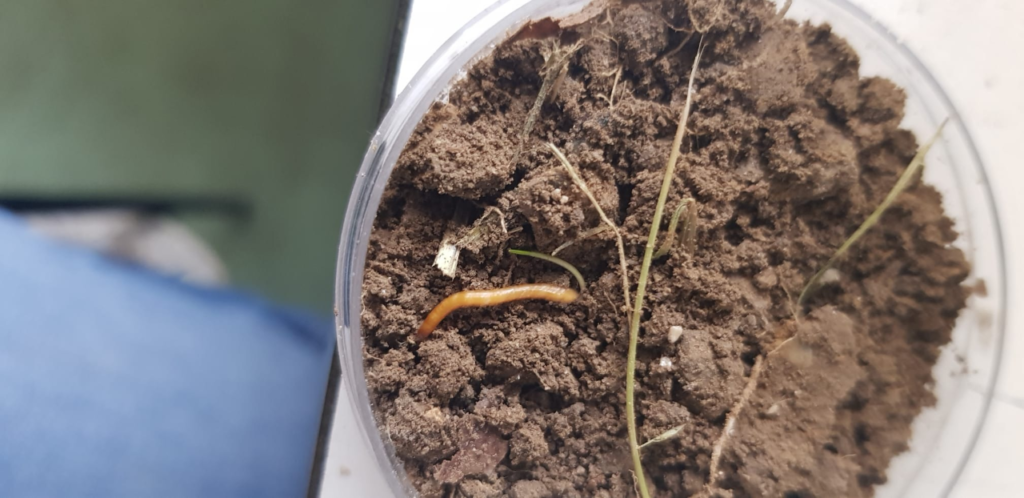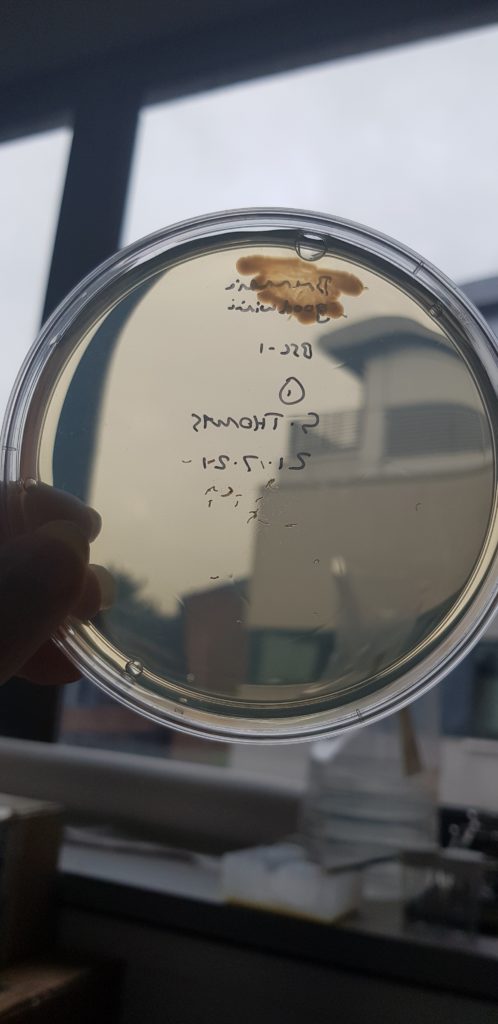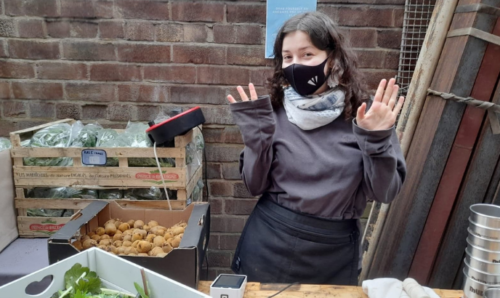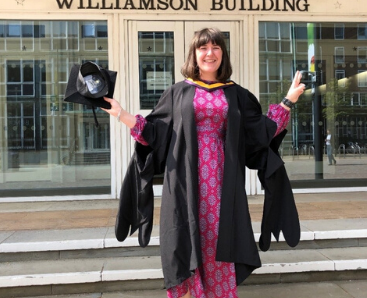Summer Internship- Rothamstead
Student experience 25th October 2021
Jasmine Vallabh talked to us about her summer internship at Rothamsted Research, and gives advice to students looking to apply for work experience.

Over the Summer of 2021, I was given the opportunity to gain experience with Rothamsted Research to contribute to some of their cutting-edge research. Rothamsted Research is one of the oldest agricultural research institutions in the world, playing a leading role in agricultural research across disciplines including sustainability, plant science and crop protection, with the aim ‘to bring together global science, fresh thinking and innovation for lasting benefits worldwide’. The institute has two sites; one in Harpenden, Hertfordshire, and North Wyke, Devon.
Application
During my second year at Manchester, I decided to learn more about potential career opportunities. I searched for weeks for industrial placements and research opportunities in the environmental sector, finding many that caught my eye. As summer approached, I began to worry as all I had so far were rejections from all the industry and research placements that I applied for.
I had an interview for a research placement from Rothamsted to work on some innovative research to look at the “Genetic Basis of Asparagine Accumulation”, but I was unsuccessful. I was certain I wasn’t going to get anything by this stage, but a few days later I received an email from Rothamsted asking if I wanted to join a different team, whose main area of research is Chemical Ecology, within the Biointeractions and Crop Protection department. Chemical Ecology is the study of chemically mediated interactions between organisms. I must admit, I was put off by the word “chemical” as chemistry is not my strong suit, however the experience to come was most definitely one of the most exciting and valuable experiences I could have asked for. I spent some days deliberating and eventually decided that any form of experience is better than none – I was correct.
The Project
The main project I was involved in was related to wireworms, which are the larvae of click beetles and are important agricultural pests. They feed on the roots of economically important crops, including wheat and maize, as well as a range of vegetable crops, and can result in substantial yield losses if not controlled. My project involved determining if wireworms are attracted to volatile organic compounds produced by plant roots . This could enable the development of more sustainable pest management tools to control wireworms, rather than relying on the application of synthetic pesticides, which pose a range of environmental and economic problems.
The project started a few years ago, with the synthetic compounds hypothesised to attract the wireworms being discovered before I joined. In order to test this hypothesis and carry out these experiments, we first needed to collect wireworms, for which we set up bait traps to attract them.
Bait traps contained wheat seeds and a substrate, and were placed in several fields across Rothamsted and then even more in local farms, which we had contacted, who informed us they were having problems with wireworms. After leaving the traps for a week, we retrieved them and sifted through the pots to collect as many wireworms as possible. Once we had collected enough wireworms to enable us to have multiple replicates, ensuring the experiments were statistically robust, we could perform the behavioural experiments.
To test the attraction of wireworms to the synthetic compounds, we used a well-established method in chemical ecology called four-arm olfactometry. This is where an organism is given a choice of different treatments, which can tell us whether compounds are attractive, repellent, or neutral. In an olfactometer, four chambers containing sand were set up with three control chambers, and one chamber containing a synthetic mixture of compounds which contain the compounds produced by plant roots, hypothesised to be attractive to the wireworm. In each experiment, ten wireworms were placed in the central chamber, and after 24 hours, I counted the wireworms to determine how the wireworms responded to the compounds.
Unfortunately for us, this did not go the way we wanted. In almost all the repeats, most of the worms were found in the central chamber and a few in the control arms as opposed to the treatment arm. This was repeated with a more diluted treatment which was significant, therefore these results can potentially be used by farmers in the future to pull wireworms away from the target crops and towards the synthetic compound to minimise the damage to crops.
Additional Tasks

Alongside the wireworm project, I was given the opportunity to explore Rothamsted’s labs and to help with other ongoing projects and learn about the techniques used in the chemical ecology laboratory. I examined the behaviour of beetle larvae by placing them in a petri dish to determine their response to volatiles produced by pathogenic bacteria (see image on the right).
I also learned how to collect the bacterial volatile organic compounds using dynamic headspace collections, which is a technique which collects volatiles from the air above bacterial cultures by blowing air over the cultures and trapping the volatiles on an adsorbent tube. Once the volatiles are collected, I used Gas Chromatography (GC), which separates mixtures of compounds, and coupled GC-mass spectrometry, which can be used to identify the separated compounds. I was also given the opportunity to try a technique called Gas Chromatography Electroantennography, which we removed the antenna of an aphid and measured its response to different chemical compounds in a mixture; perhaps the most interesting part of my experience.
My Work Experience
All in all, my experience with Rothamsted will be one that will stay with me for a very long time. There are many benefits to carrying out summer placements. I discovered that research in this area is something that I have found an interest in, encouraging me to apply for Master’s and seek out more opportunities in the future! Industry and research placements allow you to gain a practical understanding about an area of science that interests you and helps in making informed decisions as to whether it is a path you wish to follow. You will gain valuable skills and experience, including field and lab skills if you engage in a research placement, or specialist knowledge and an understanding of the field should you carry out an industry placement. Either way, you will network with key people wherever you go – an invaluable asset for after you graduate which will open up many potential pathways for you and your career.
My advice to those of you who are interested in any sort of placement or internship would be to:
- Start looking early – I only began searching from April, and I know I missed out on many opportunities advertised through the autumn and winter.
- Expect rejections – rejections are completely normal so don’t let this dishearten you.
- Use the careers service – the university provides a wide range of information that can help you improve your CV and much more.
- Apply to as many opportunities as possible – but ensure your applications are tailored for each one.
- Don’t be picky – even if unpaid or slightly outside of your comfort zone, any opportunity is something to get your foot in the door and give a head start for your future!
careerschemical ecologysustainable agriculturework experience




Leave a Reply